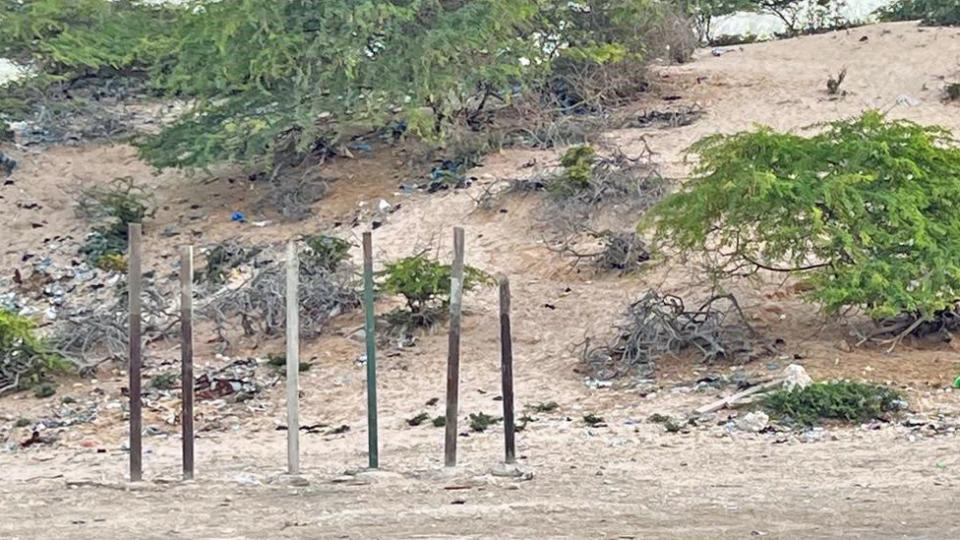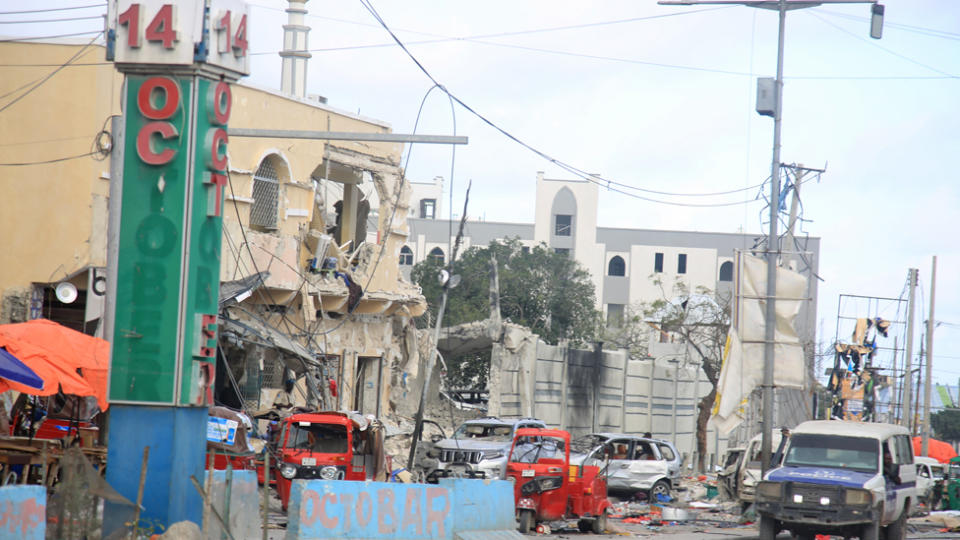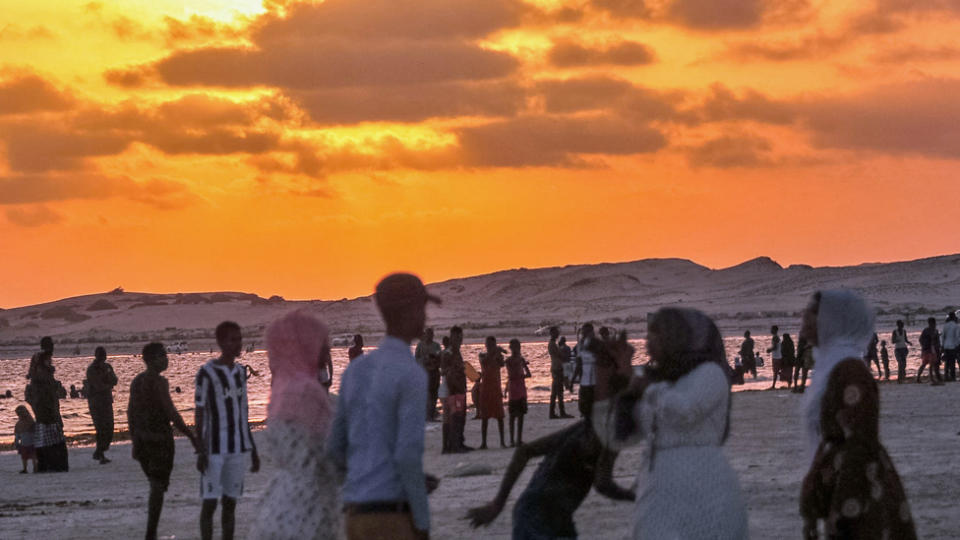[ad_1]
On a beach in the Somali capital, Mogadishu, stand six tall concrete pillars planted in the pure white sand. The bright blue waves of the Indian Ocean break gently nearby, often bearing witness to some horrific events.
Warning: This article contains descriptions that some people may find disturbing
Often, security forces bring men to this place, tie them to columns with plastic ropes, put black hoods on their heads and shoot them.
The faces of the specially trained execution squad members were also hidden.
The heads of the dead flop down, but their bodies remain upright, tied to the posts. Their tattered shirts and cloaks flutter in the breeze.
The military court convicted some of them of belonging to the Islamic Al-Shabaab movement, which has been spreading terror in Somalia for nearly 20 years and controlling large parts of the country.
Others are soldiers convicted of killing civilians or their colleagues. Sometimes the court deals with common criminals who have been sentenced to death because their crimes are so serious.
At least 25 people were executed on the beach last year.
The latest person to face the death penalty is Saeed Ali Maalim Daoud, who was sentenced to death on March 6 for locking his wife, Lul Abdel Aziz, in a room and setting her on fire. He said he burned her alive because she asked for a divorce.
Just beyond the killing zone is a small informal settlement in the Hamar Jajab area – filled with dilapidated housing and makeshift shelters where about 50 families live on the site of what was once a police academy.
“As soon as my five young children come home from school, they run to the beach to run or play soccer,” says Fartoun Mohamed Ismail, a resident of the old police training center on the seaside.


“They use execution poles as targets,” she says.
“I am worried about my children’s health because they are playing in the spilled blood where people are being shot.
“The area is not cleaned after the executions.”
Graves of those who were shot were found around the beach.
Ms. Ismail says her children are accustomed to violence and insecurity because they were born in Mogadishu, a city affected by conflict for 33 years.
However, she and other parents feel that playing with the blood of convicted criminals is too much.
However, it's hard to prevent kids from joining their friends at the beach when most parents are trying to earn a living, so they're not always around to intervene.
Executions usually took place early in the morning, between 06:00 and 07:00.
Only journalists are invited to witness the killings, but no one prevents local residents, including children, from gathering and watching.
In fact, the beach was chosen as the place of execution in 1975 by Siad Barre when he was president, precisely because nearby locals were able to watch.
His military government erected columns for some Islamic clerics who were immediately shot for opposing the new family law that gave girls and boys equal inheritance rights.
Today only leaflets remain, although crowds are no longer actively encouraged.
However, parents are concerned that children playing at the execution ground risk being shot when someone is executed.
They say their descendants are afraid of the police and soldiers because they only associate them with killing people in front of their eyes.


“I have difficulty sleeping at night and I feel very anxious all the time,” admits Faduma Abdullah Qasim, who also lives in the neighborhood, meters away from the execution site.
“Sometimes I hear gunshots in the morning and know that someone has been executed,” she says.
“I try to keep my kids inside all the time. We're sad and inactive. I hate going out and seeing blood seeping into the sand next to me.”
Although most residents living in the neighborhood are traumatized by living near the site of the execution, many Somalis support the death penalty, especially for members of Al-Shabaab.
Ms Qasim is unusual in opposing this – especially since her 17-year-old son, who worked as a cleaner at a snack bar, was killed in a massive double car bombing in Mogadishu in October 2022. More than 120 people were killed and 300 others were killed. They were injured in the attack, which was blamed on Al-Shabaab.
“I don’t personally know the people who are executed, but I think this practice is inhumane,” she says.
It is not only the children of the beach neighborhood who play in the sand near the execution sites.
Young people from other parts of the city gather there, especially on Fridays, the weekend in Somalia.


One of them is 16-year-old Abdul Rahman Adam.
“My brother and I come here every Friday to swim and play soccer on the beach,” he says.
“My sister comes too, and she’s dressed in her finest so she can post and look pretty when we take pictures of her.”
He and the others who flock to the beach know of the executions and the graves of the people who were shot there—but they go regardless.
For them a central and beautiful location is more important.
“Our colleagues are jealous when they see the pictures. They don’t know that we are sitting on the execution ground.”
Naima Saeed Salah is a journalist at the only women's media organization in Somalia, Bilan Media.
More Somalia stories from the BBC:
[ad_2]
Source

